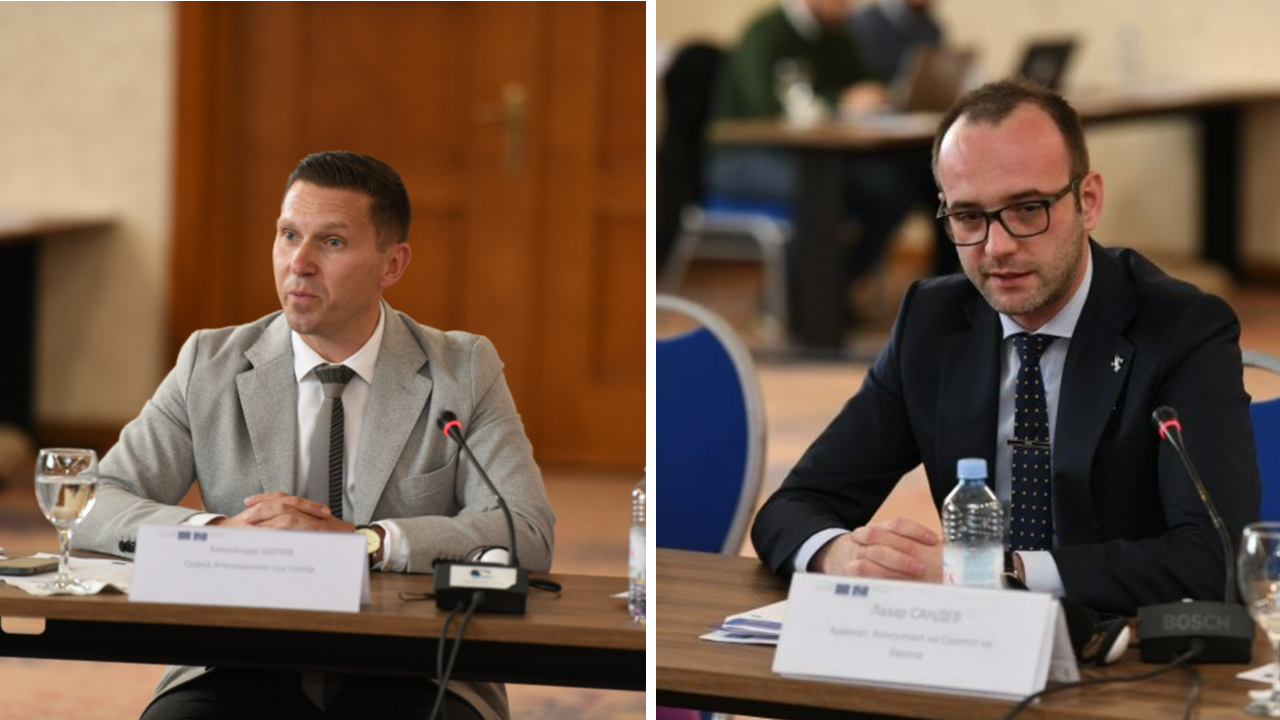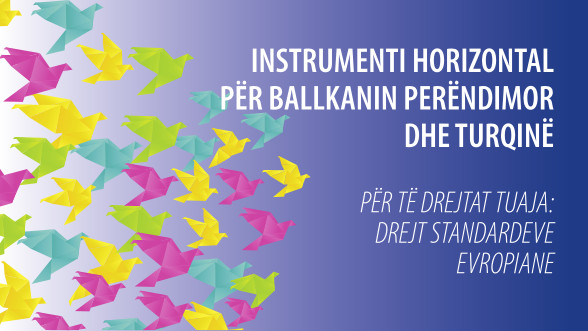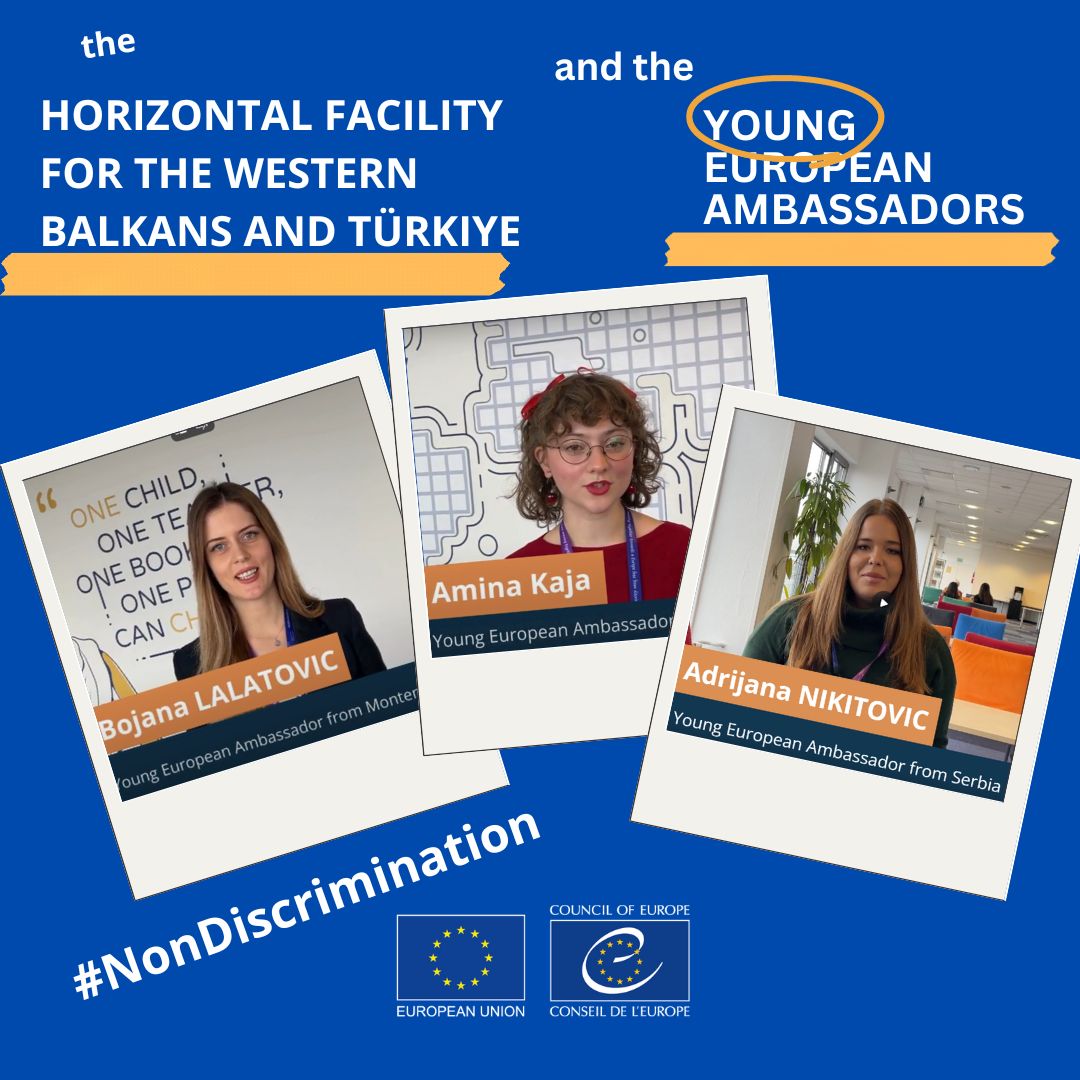Marking World Press Freedom Day on 3 May, free voices from North Macedonia are sounding the alarm about a growing threat to democracy: Strategic Lawsuits Against Public Participation (SLAPPs). These lawsuits, often disguised as defamation or civil claims, are increasingly used to intimidate journalists, drain their resources, and silence critical reporting.
In the continuous efforts to address such threats, the European Union and Council of Europe joint action “Protecting Freedom of Expression and of the Media in North Macedonia (PRO-FREX)” has mobilised media professionals, law enforcement, lawyers, prosecutors and judges to build a national resilience against legal intimidation tactics posed to freedom of speech.
Judge Aleksandar Shopov from the Appellate Court in Skopje, and a PRO-FREX trainer, shared his experience and the importance of the PRO-FREX action to help build a better understanding among judges of the core principles of freedom of expression and the protection of journalists. According to him, the shared knowledge and in particular the Recommendation CM/Rec(2024)2 of the Committee of Ministers to member States on countering the use of strategic lawsuits against public participation (SLAPPs) represented a crucial step forward – it gave us a clear framework to recognise and address abusive lawsuits. “Even before any specific anti-SLAPP legislation was adopted, judges already had guidance rooted in European standards and case-law from the European Court of Human Rights. We were already using these tools to shape our own jurisprudence and to safeguard the public interest in open debates,” shared Shopov.
Another trainer on freedom of expression and SLAPPs is Lazar Sandev, a legal professional from Skopje, North Macedonia. He explained that, as a lawyer dealing with SLAPP lawsuits and also a trainer within the PRO-FREX action, he is now more aware about the Council of Europe recommendations as a tool for identifying and resisting such abuses. “The trainings we organise with the support of PRO-FREX action are essential to strengthen the capacities of judges, prosecutors and lawyers in dealing with SLAPPs cases. This approach contributes to the ongoing advancement and protection of freedom of expression as a fundamental human right,” stressed Sandev, who is a legal representative of the journalists involved in the Investigative Reporting Lab (IRL) – one of the most prominent investigative journalism platforms in North Macedonia and beyond.
IRL is well-known for uncovering complex corruption scandals, illicit financial flows, and abuse of power, and consequently has frequently been targeted by SLAPPs. These lawsuits aim not only to punish journalists for their revelations but to deter future reporting in the public interest. Journalists like Saska Cvetkovska, IRL’s Editor-in-Chief, and Maja Jovanovska, investigative reporter at the Lab, speak to us about such pressures firsthand. Both Cvetkovska and Jovanovska have been involved in high-profile investigations that triggered retaliatory lawsuits, as well as waves of hate speech and coordinated online harassment. As women journalists reporting on corruption and abuse of power, they are often subjected to gender-based attacks aimed at discrediting and intimidating them. Despite these pressures, IRL continues to report fearlessly - offering a clear example of why robust legal and institutional protections against SLAPPs and abuse are urgently needed.

“SLAPP lawsuits are a serious threat to free journalism. They not only discourage journalists from investigating important issues but also deprive the public of crucial information about abuses of power. Without clear application of freedom of expression standards, we risk creating a society where silence is louder than truth.”– highlighted Jovanovska.
According to the Association of Journalists of Macedonia (AJM), defamation lawsuits against journalists have increased significantly. In 2022, there were 54 lawsuits for insult and defamation—more than double compared to 20 in 2021. In 2023, AJM identified 6 SLAPP cases, and in 2024, 8, based on their internal checklist aligned with the Council of Europe’s standards on SLAPPs. According to the 2025 World Press Freedom Index by “Reporters Without Borders”, North Macedonia dropped from 36th to 42nd place, with the state of media freedom in the country rated as “satisfactory.”
The recent “Regional Baseline Assessment of Legislative and Policy Needs for Implementing European Anti-SLAPP Standards”, provides an in-depth look at the different legal frameworks in the Western Balkan Beneficiaries, including North Macedonia. The report identifies key gaps in how these countries address SLAPPs and recommends reforms to align domestic laws with European standards, including the latest Anti-SLAPP guidelines from the Council of Europe and the EU.
The EU and Council of Europe joint PRO-FREX action, along with its predecessor JUFREX, has been implemented for nine years, aiming to drive significant change also in the fight against SLAPPs. This effort is complemented by the Council of Europe’s Campaign for the Safety of Journalists—Journalists Matter, which is raising awareness about journalist safety and key challenges they face every day. Additionally, the Council of Europe’s Platform to promote the protection of journalism and safety of journalists also plays a crucial role in promoting the protection and safety of journalists, by monitoring and addressing violations of media freedom across its member states.
As North Macedonia joins the rest of the world to mark World Press Freedom Day, these voices—from the judiciary, and media—serve as a powerful reminder: protecting journalism from SLAPPs is not optional. It is a democratic imperative!
This initiative is supported through the action “Protecting freedom of expression and of the media in North Macedonia” PRO-FREX, implemented by the Division for Cooperation on Freedom of Expression within the Council of Europe, and is part of the joint European Union and Council of Europe programme “Horizontal Facility for the Western Balkans and Türkiye”.



